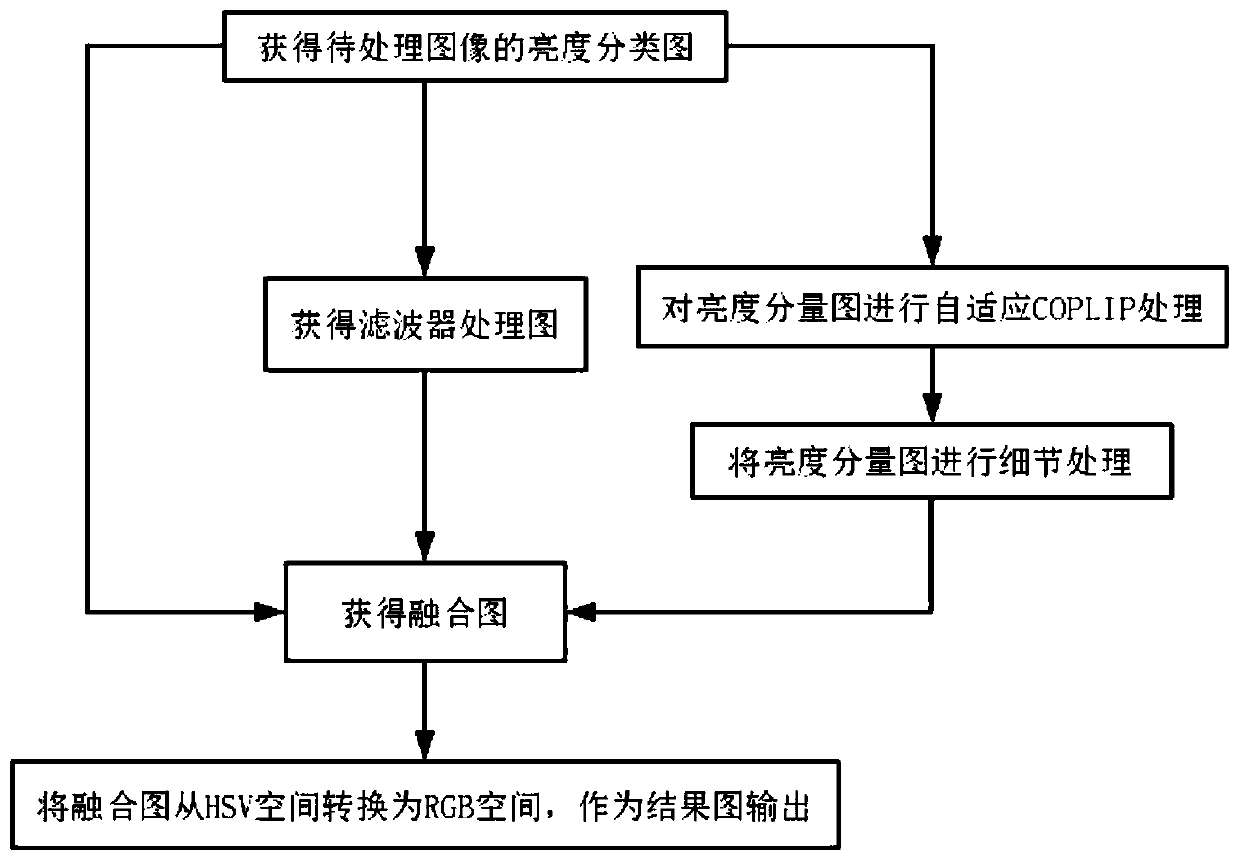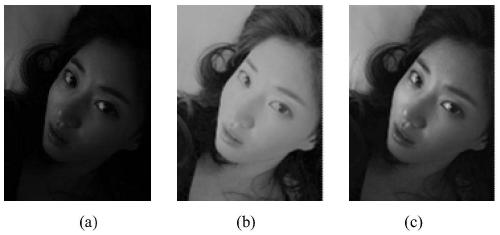Image processing method based on self-adaptive PLIP model
An image processing and self-adaptive technology, applied in the field of image processing, which can solve the problems of loss of details and uneven brightness of the result image, and achieve the effects of uniform brightness, improved average brightness, and improved accuracy.
- Summary
- Abstract
- Description
- Claims
- Application Information
AI Technical Summary
Problems solved by technology
Method used
Image
Examples
Embodiment Construction
[0036] The present invention will be further described below in conjunction with the accompanying drawings.
[0037] refer to figure 1 The present invention is further described.
[0038] Step 1, obtain the luminance component map of the image to be processed.
[0039] Input a natural image to be processed, if the image is a color image, convert the image from the red, green and blue RGB color space to the hexagonal pyramid HSV color space, and extract the image from the hexagonal pyramid HSV color space The brightness component of the image is obtained to obtain the brightness component map of the image to be processed, and divide the brightness component map into even blocks.
[0040] The following information entropy formula is used to calculate the information entropy of each image block after block, and the average value of the information entropy of all image blocks in the luminance component map is taken as the information entropy of the luminance component map.
[004...
PUM
 Login to View More
Login to View More Abstract
Description
Claims
Application Information
 Login to View More
Login to View More - R&D
- Intellectual Property
- Life Sciences
- Materials
- Tech Scout
- Unparalleled Data Quality
- Higher Quality Content
- 60% Fewer Hallucinations
Browse by: Latest US Patents, China's latest patents, Technical Efficacy Thesaurus, Application Domain, Technology Topic, Popular Technical Reports.
© 2025 PatSnap. All rights reserved.Legal|Privacy policy|Modern Slavery Act Transparency Statement|Sitemap|About US| Contact US: help@patsnap.com



